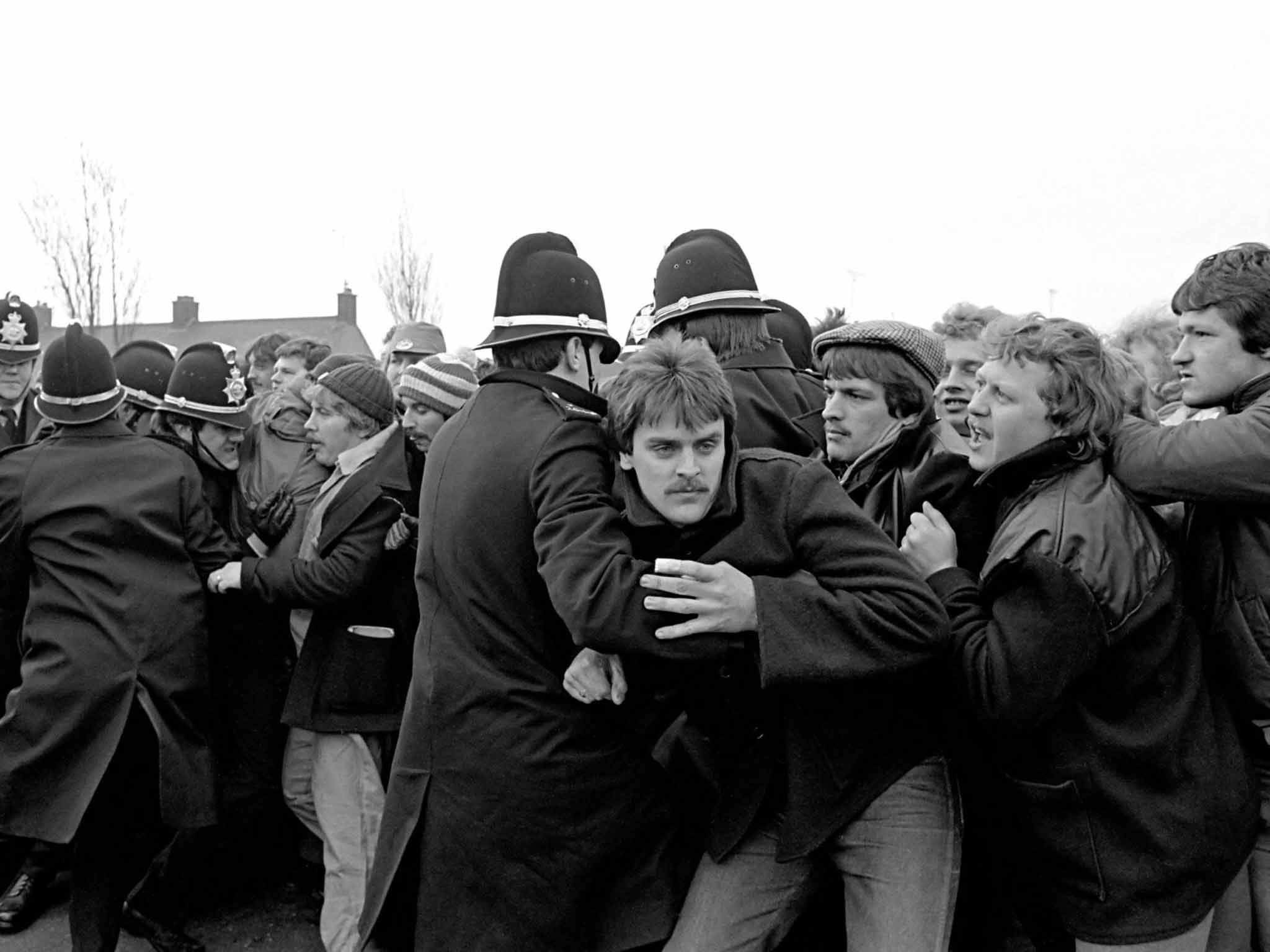Pride the movie: Jonathan Blake, the campaigner played by Dominic West, talks about HIV, the miners' strike and gay rights
The pioneering HIV-positive activist, now 65, on still being angry with Thatcher and what it's like to be played by McNulty
Your support helps us to tell the story
From reproductive rights to climate change to Big Tech, The Independent is on the ground when the story is developing. Whether it's investigating the financials of Elon Musk's pro-Trump PAC or producing our latest documentary, 'The A Word', which shines a light on the American women fighting for reproductive rights, we know how important it is to parse out the facts from the messaging.
At such a critical moment in US history, we need reporters on the ground. Your donation allows us to keep sending journalists to speak to both sides of the story.
The Independent is trusted by Americans across the entire political spectrum. And unlike many other quality news outlets, we choose not to lock Americans out of our reporting and analysis with paywalls. We believe quality journalism should be available to everyone, paid for by those who can afford it.
Your support makes all the difference.Pride, the warm film that tells the true story of how a group of gay activists came together to support the striking miners in the Eighties, is a story that might never have been told. Jonathan Blake, one of the activists on whom the film is based, says he thought he'd take it to his grave.
The BAFTA-winning film immortalises the campaign by Lesbians and Gays Support The Miners. They raised over £22,000 for the impoverished Welsh mining community of Dulais, and formed deep and lasting friendships with the people affected by Margaret Thatcher's pit closures. "We were serious," says Blake.
"They were a force to be reckoned with," says Blake. "In photographs you can see miners’ banners along the background. It wasn’t fantasy."
Despite having raised funds, the group were outright rejected by the Miners' Union at first, because money from gay people for impoverished communities wasn't seen as appropriate. Blake and LGSM then reached out to the village of Dulais, and they were in. Recalling the first time the two groups met, Blake says there was a great deal of trepidation, but the warmth of the community was there immediately. "What was amazing when we did walk in to the room for the first time, we opened the door and everything went quiet. We just thought: 'Oooh dear,'" Blake says.
"But someone started applauding, and the whole room applauded. That was just extraordinary and we were so welcomed. Given the hardship that these people were dealing with, the generosity and the generosity of spirit that we were greeted with was amazing."
Blake was played with alacrity by West, who executes an incredible dance routine based on a real night out in Wales. West came to visit him at his home and Blake was happy and astonished to see "McNulty from The Wire" on his front doorstep. They spent time together in his garden, and Blake laughs with delight when The Independent suggests that being played by West was a bit of a coup.
While Blake's on-screen story with LGSM shows hardships being overcome, his own life has seen similar struggle. Blake was diagnosed with HIV in 1982. His was the first ever diagnosis of the disease at the Middlesex Hospital. "My number was London 1 at the Middlesex," he says. "I was diagnosed October 1982, and it wasn’t even called HIV then, it was called HTLV3. It was terrifying - it was a terminal diagnosis."
Defying the doctors, Blake has celebrated his 65th birthday.
"In December '82 I tried to commit suicide but I couldn’t do it," he said. "I couldn’t stand the thought of someone having to clean up the mess after me. And I thought: 'If you can’t kill yourself, you’d better get out and live.' And it's difficult when self-confidence is just on the floor, but I saw there was going to be a gay gathering on 1 April 1983, and I just thought: 'Let’s do this, let’s go out and join the world again'."

Despite being convinced nobody would want to talk to him there and being "really nervous", he made friends for life. "I was welcomed and that’s when I met Nigel, my partner, and we’re still together 32 years later. And everything changed. And if it hadn’t been for that I wouldn’t have been involved with LGSM I wouldn’t be living in Brixton – my whole life changed."
As an HIV-positive man in the Eighties, Blake remembers the press being "appalling". "Particularly because it was a 'gay plague' and we didn’t really count," he says.
Blake might now tend to community gardens and bake a mean lemon drizzle cake, but a fire still burns. He still "hates" Thatcher for what he believes were deliberate power cuts to make the mining communities relent, and describes the modern Conservative party as "so destructive". Since Pride was released, the group have reconvened. You never know, there might be a sequel in the making.
Pride is out on Blu-ray and DVD now.
Join our commenting forum
Join thought-provoking conversations, follow other Independent readers and see their replies
Comments